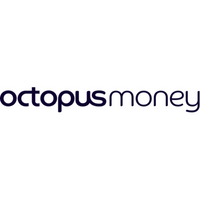Four top tips for driving employee engagement with financial benefits

So how can employers create higher engagement and have a greater impact on their employees’ financial wellbeing?
We’ve provided financial coaching to more than 8,000 employees and seen up to 60% uptake (compared with 5% for other financial benefits). So what makes the difference?
Taking insights from some of the UK’s biggest and best employers, there are four principles employers can follow to drive better benefits engagement.
1. Make it personalised – and personable: People respond better if they have someone they can confide in and talk to when it comes to complex or emotional topics. Our research found that 60% of employees want advice and guidance to be given in a coaching style that is supportive and validating.
The challenge with most financial advice is that it’s both generic and complicated, making it hard to understand in relation to an individual’s situation. A 1:1 conversation helps to break down complex ideas into bite-sized chunks and explore or compare different options/decisions more easily and without judgement or bias.
As well as having a personal financial coach to talk to, the mental health ambassador system adopted in many workplaces is a great example of making difficult conversations more human and accessible. Having pensions champions and financial health ambassadors in the workplace could similarly help to break down barriers to talking about money with trusted colleagues.
2. Make it relevant to your employees’ lives: To quote one of our head coaches, Shah Abbasi: “Many employees don’t understand how valuable some of the benefits they get are until they see them in the context of their dreams for the future.”
People’s lives and financial requirements change regularly. So, we find that marking and acknowledging individual and annual milestones can help. It gives people a chance to assess the road they’re on and whether they’re making the right choices. They can then decide whether to deviate, pause, increase activity or change direction entirely - such as whether to put their bonus into a pension, move to ethical investments or decide to save for a career break.
Again, our research shows that 73% of people who aren’t clear about their goals don’t feel positive about their future. Your employees need to be clear on how your benefits connect with their lives and goals. It gives them a greater understanding of what they are working towards and a sense of fulfilment.
We know there’s no ‘one-size-fits-all’. For some, paying the mortgage or childcare are higher priorities than car payments and investments. But discussing people’s short, medium and long-term goals and using milestones as a framework can help them understand and evaluate their priorities and prepare personally, professionally and financially.
3. Be always-on, not one-off: When it comes to money, it’s unlikely your employees are only thinking about it during your benefits selection window – in fact 37% of people worry about it “often”.
We aim to provide information in a variety of ways, combining personal emails with webinars, manager briefings, Slack or Teams channels, social media and screen-savers. This builds strong initial engagement rates, which improve when there are frequent iterations around life events and milestones throughout the year, including tax return time, bonus season and graduate entrance.
4. Connect your success to your employees’ success: There are plenty of ways to measure the return on investment of your financial wellbeing services. The challenge for employers is selecting which resonates most with their purpose and values as an organisation, and moves beyond measuring turnout and clicks to focus on the meaningful impact you can have on your employees’ lives.
To know whether your engagement strategy is working, you need to be clear on what you want to achieve. For example, are you interested in financial health indicators, like how employees’ pension contributions or savings have increased? Or is productivity, employee satisfaction or retention the most important measure of success?
Financial wellbeing impacts total wellbeing, so employers could learn from how they have approached monitoring their employees’ mental health and tangible improvements in that area.
The Author is Caspian Paget, coach excellence manager at Octopus MoneyCoach
Article supplied by Octopus MoneyCoach
Supplied by REBA Associate Member, Octopus Money
People are your single biggest investment. We’ll help them get the most out of their pay and pension – by connecting the dots between their dreams in life and their reward at work.







